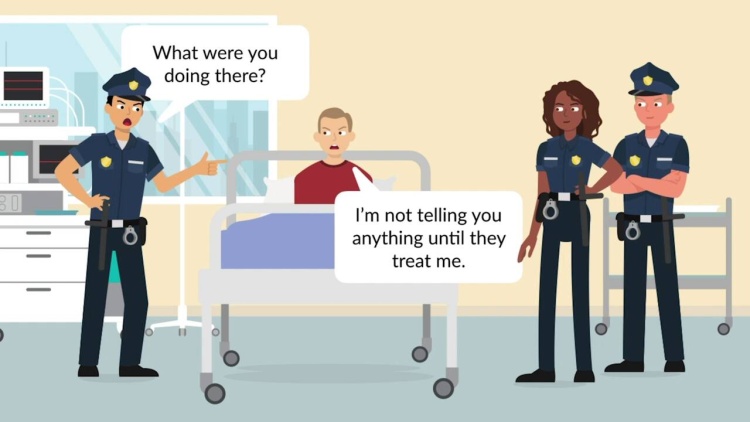Chavez v. Martinez
United States Supreme Court
538 U.S. 760, 123 S. Ct. 1994, 155 L. Ed. 2d 984 (2003)
- Written by Sarah Venti, JD
Facts
Oliviero Martinez (plaintiff) was suspected of a crime. During a confrontation with two police officers, Martinez grabbed one of the officer’s guns, and the other officer shot Martinez multiple times. The officers arrested Martinez and went with him to the hospital, where Martinez underwent emergency medical treatment. Patrol supervisor Ben Chavez (defendant) came to the hospital as Martinez was being treated and immediately began to interrogate him. Martinez ultimately confessed, thinking he was about to die. None of the officers ever gave Miranda warnings to Martinez. Martinez was never charged with a crime. Martinez subsequently brought a civil-rights action under 42 U.S.C. § 1983, claiming that Chavez violated his Fifth Amendment right against self-incrimination and his Fourteenth Amendment right to be free from coercive interrogation. Chavez moved for summary judgment, arguing that because Martinez’s confession was never introduced as evidence at a criminal trial, Martinez’s constitutional rights were not violated. The district court denied Chavez’s motion, and the court of appeals affirmed on interlocutory appeal. Chavez petitioned the United States Supreme Court for review.
Rule of Law
Issue
Holding and Reasoning (Thomas, J.)
Concurrence (Souter, J.)
Concurrence/Dissent (Kennedy, J.)
Concurrence/Dissent (Ginsburg, J.)
Dissent (Thomas, J.)
What to do next…
Here's why 899,000 law students have relied on our case briefs:
- Written by law professors and practitioners, not other law students. 47,000 briefs, keyed to 994 casebooks. Top-notch customer support.
- The right amount of information, includes the facts, issues, rule of law, holding and reasoning, and any concurrences and dissents.
- Access in your classes, works on your mobile and tablet. Massive library of related video lessons and high quality multiple-choice questions.
- Easy to use, uniform format for every case brief. Written in plain English, not in legalese. Our briefs summarize and simplify; they don’t just repeat the court’s language.





